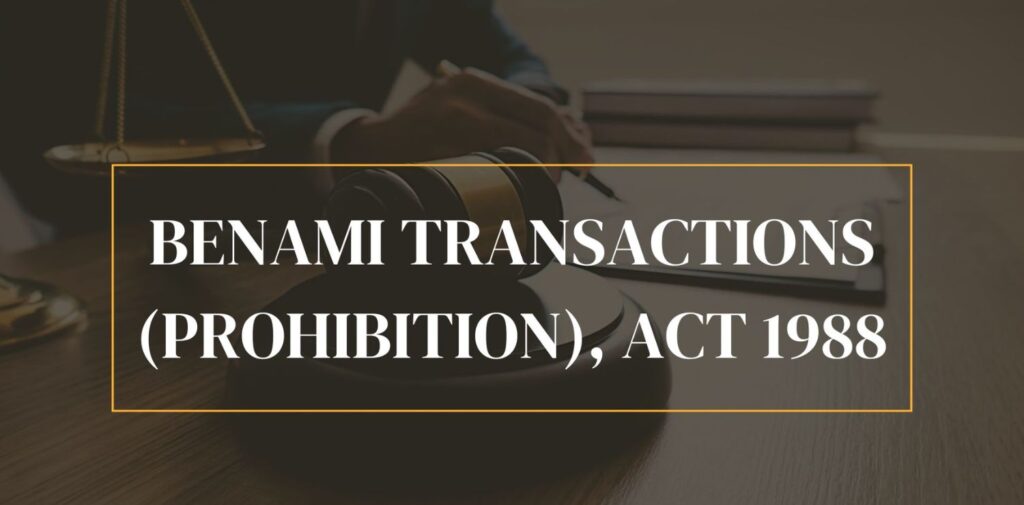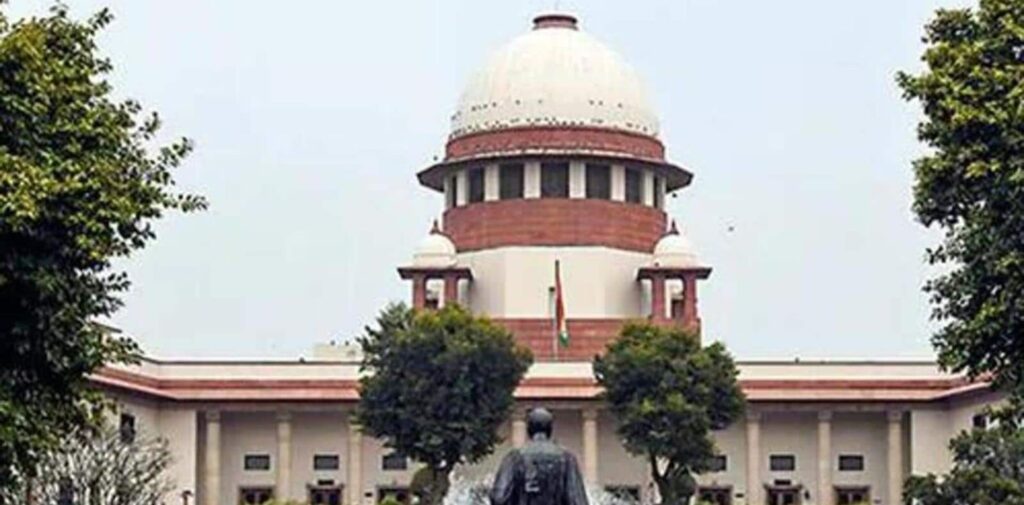In a significant legal development, the Benami Property Act by SC of India recently recalled its 2022 judgment that struck down crucial amendments to the Benami Transactions (Prohibition) Act, of 1988. This decision has stirred considerable discussion, reflecting the complexities of property laws in India and their implications for economic governance and tax collection.
Understanding the Benami Transactions (Prohibition) Act
The Benami Transactions (Prohibition) Act was established to combat the issue of property transactions made in the name of another person, typically to conceal the true ownership and evade taxes. Under this law, benami property transactions are prohibited, and the law allows the government to confiscate such properties. The amendments made in 2016 strengthened the Act by introducing stricter penalties and expanding the definition of benami transactions.

The 2022 Judgment: A Controversial Ruling
In 2022, a Supreme Court bench ruled parts of the amended Act unconstitutional. The court held that certain provisions were overly broad and violated fundamental rights, particularly the right to equality and property right. This decision raised alarms among tax authorities and financial regulators, who viewed it as a setback in the fight against black money and tax evasion.
Critics argued that the ruling would undermine efforts to curb illicit financial practices, effectively creating loopholes for those wishing to exploit the system. Proponents of the ruling, however, claimed it was a necessary safeguard against potential misuse of the law.
The Recent Reversal: Key Developments
On October 18, 2024, the Supreme Court made a pivotal move by recalling its previous judgment. This decision has been celebrated by government officials and tax authorities as a much-needed reinforcement of the legal framework designed to tackle benami transactions. The court emphasized that the provisions of the amended Act are vital for maintaining economic integrity and transparency.

The Legal Basis for the Recall
The Supreme Court’s decision to reconsider its earlier ruling was based on various factors. The court acknowledged that the provisions in question are crucial for combating financial crimes and ensuring that property ownership is transparent. By recalling its judgment, the court aimed to restore the government’s ability to take action against individuals engaging in benami transactions.
Legal experts suggest that this move could lead to a stronger enforcement mechanism against tax evasion and money laundering. The court’s decision aligns with the government’s objectives to enhance financial accountability and strengthen the legal framework surrounding property ownership.
Implications for Property Ownership and Taxation
The reversal of the 2022 judgment has several implications for property ownership and the tax landscape in India:
- Restoration of Enforcement Powers: With the provisions back in force, authorities can once again pursue benami transactions vigorously. This could lead to increased scrutiny of property transactions and potentially uncover hidden assets linked to illegal activities.
- Enhanced Revenue for the Government: By curbing tax evasion through benami transactions, the government may see an increase in tax revenues. This is particularly crucial as the country strives to meet its financial obligations and fund development projects.
- Legal Clarity for Property Transactions: The Supreme Court’s decision provides clearer guidelines for individuals and businesses engaged in property transactions, reducing uncertainty about the legal ramifications of benami deals.
- Impact on Real Estate Sector: The ruling may influence investor confidence in the real estate market. Potential buyers may feel more secure knowing that stringent laws against benami transactions are in place, which could encourage legitimate investment.

Reactions from Stakeholders
The recall of the Supreme Court’s earlier judgment has prompted varied responses from different stakeholders:
- Government and Regulatory Bodies: Government officials have welcomed the decision, stating that it reinforces the commitment to combat corruption and financial malpractice. The Finance Ministry expressed satisfaction, viewing this as a vital step in enhancing the credibility of property transactions and ensuring compliance with tax laws.
- Legal Experts and Advocates: Legal experts have emphasized the importance of a balanced approach. While the restoration of the law is essential for tackling illicit transactions, they warn against potential misuse of the provisions. Advocates for property rights stress the need for safeguards to protect genuine property owners from unwarranted action.
- Business and Real Estate Sectors: Business leaders in the real estate sector have shown cautious optimism. While the clarity brought about by the Supreme Court’s decision is appreciated, there are concerns about the rigorous enforcement that might accompany it. Industry stakeholders advocate for a fair and transparent process that protects legitimate transactions while penalizing wrongdoing.
Conclusion: Benami Property Act by SC
The Supreme Court’s decision to recall its 2022 ruling on the Benami Transactions (Prohibition) Act marks a crucial turning point in India’s legal landscape regarding property rights and economic governance. By reinstating the provisions aimed at preventing benami transactions, the court has emphasized the importance of transparency and accountability in property dealings.
As India continues to grapple with issues of corruption and tax evasion, this decision underscores the judiciary’s role in shaping policies that align with the nation’s economic goals. However, it also calls for careful implementation of the law to avoid overreach and protect the rights of genuine property owners.
The coming months will be pivotal in observing how this decision impacts the enforcement of property laws, the real estate market, and the broader economic environment in India. Stakeholders from all sectors will be keenly watching how the balance between strict enforcement and the protection of individual rights unfolds in this evolving legal landscape.




